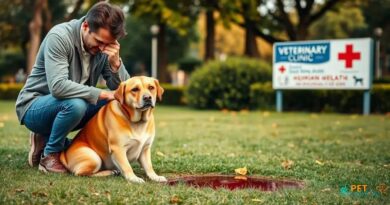What is Your dog’s vaccination schedule
Understanding Your Dog’s Vaccination Schedule
Vaccinations play a crucial role in keeping your dog healthy and preventing the spread of infectious diseases. Understanding what your dog’s vaccination schedule entails is essential for every pet owner. Vaccines work by stimulating the immune system to recognize and fight off specific pathogens, ensuring that your furry friend remains protected throughout their life.
Amazing Deals on Dog Products!
Shop now for incredible deals on dog products at Amazon.com.
LEARN MORE
Core Vaccines for Dogs
Core vaccines are those that are recommended for all dogs, regardless of their lifestyle or environment. These typically include vaccines for rabies, distemper, parvovirus, and adenovirus. The rabies vaccine is not only vital for your dog’s health but is also a legal requirement in many areas. Distemper and parvovirus are highly contagious diseases that can be fatal, making their vaccination critical for all dogs.
Non-Core Vaccines and Their Importance
Non-core vaccines are recommended based on your dog’s lifestyle, geographic location, and exposure risk. These may include vaccines for Bordetella (kennel cough), Lyme disease, and leptospirosis. If your dog frequently interacts with other dogs or spends time in wooded areas, discussing non-core vaccines with your veterinarian is essential to tailor a vaccination schedule that meets your dog’s specific needs.
Initial Vaccination Series for Puppies
Puppies require a series of vaccinations to build their immunity effectively. The initial vaccination series typically begins at six to eight weeks of age and continues every three to four weeks until they are about 16 weeks old. This series usually includes core vaccines and may also include non-core vaccines, depending on the puppy’s risk factors and environment.
Booster Shots and Their Timing
Booster shots are essential to maintain your dog’s immunity over time. After the initial vaccination series, your dog will need booster shots at regular intervals. Core vaccines generally require boosters every one to three years, while non-core vaccines may need to be administered more frequently. Keeping track of your dog’s vaccination history is crucial to ensure they receive timely boosters.
Factors Influencing Vaccination Schedules
Several factors can influence your dog’s vaccination schedule, including age, health status, lifestyle, and local regulations. Puppies, adult dogs, and senior dogs may have different vaccination needs. Additionally, dogs with underlying health conditions may require a modified vaccination schedule. Always consult with your veterinarian to determine the best plan for your dog.
Potential Side Effects of Vaccinations
While vaccinations are generally safe, some dogs may experience mild side effects, such as lethargy, swelling at the injection site, or a slight fever. Serious reactions are rare but can occur. It’s essential to monitor your dog after vaccinations and contact your veterinarian if you notice any concerning symptoms. Understanding the potential side effects can help you prepare for your dog’s vaccination appointments.
Keeping Vaccination Records
Maintaining accurate vaccination records is vital for your dog’s health and well-being. These records not only help you keep track of your dog’s vaccination schedule but are also necessary for boarding, grooming, and travel. Ensure that your veterinarian provides you with a copy of your dog’s vaccination records, and consider creating a digital backup for easy access.
Consulting Your Veterinarian
Regular consultations with your veterinarian are crucial for establishing and maintaining your dog’s vaccination schedule. Your vet can provide personalized recommendations based on your dog’s health, lifestyle, and any emerging diseases in your area. Building a strong relationship with your veterinarian ensures that your dog receives the best possible care throughout their life.



